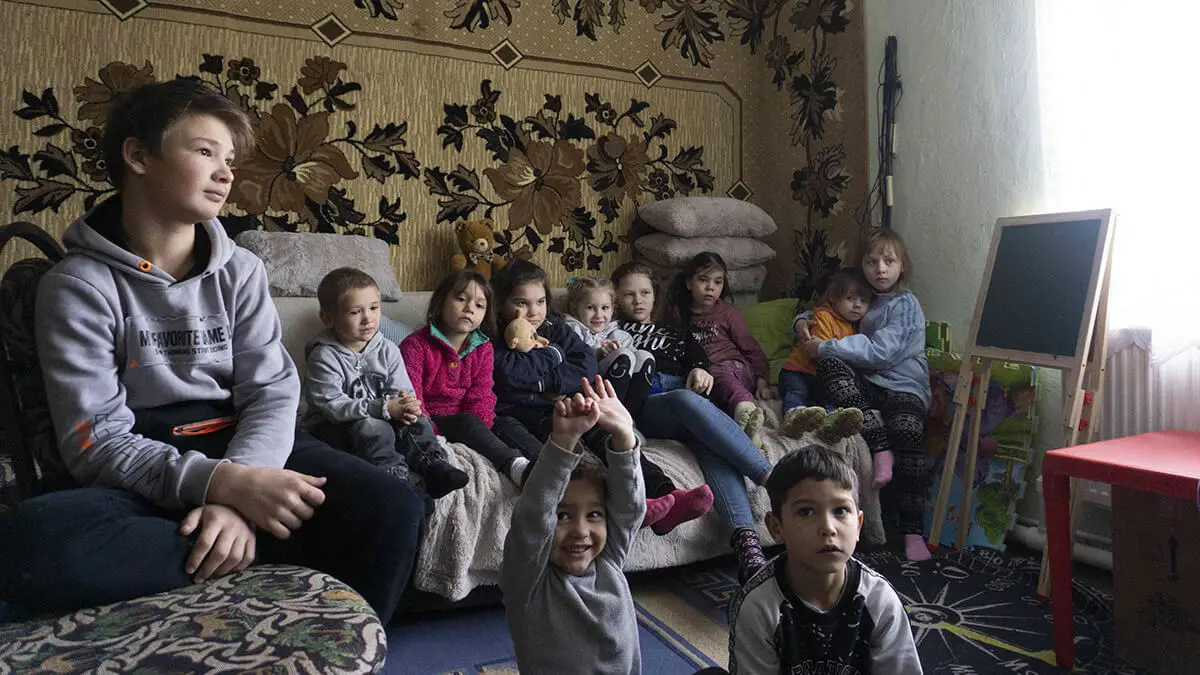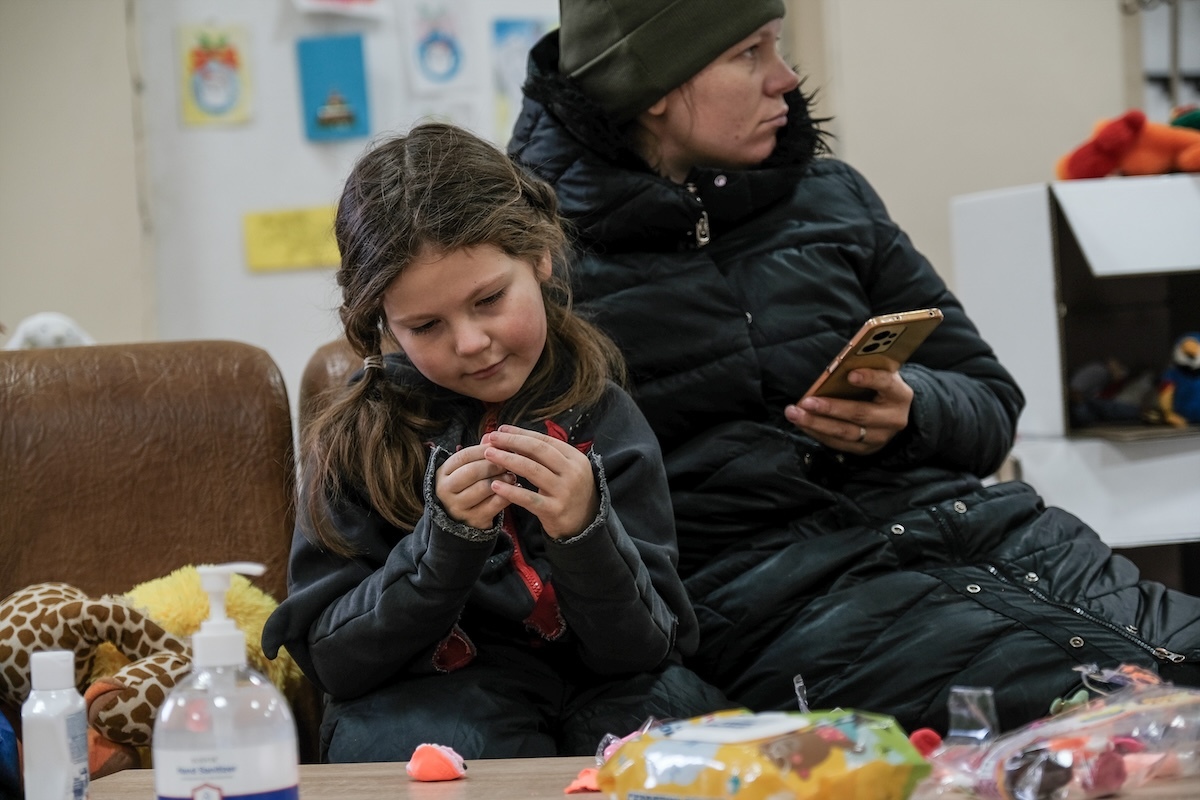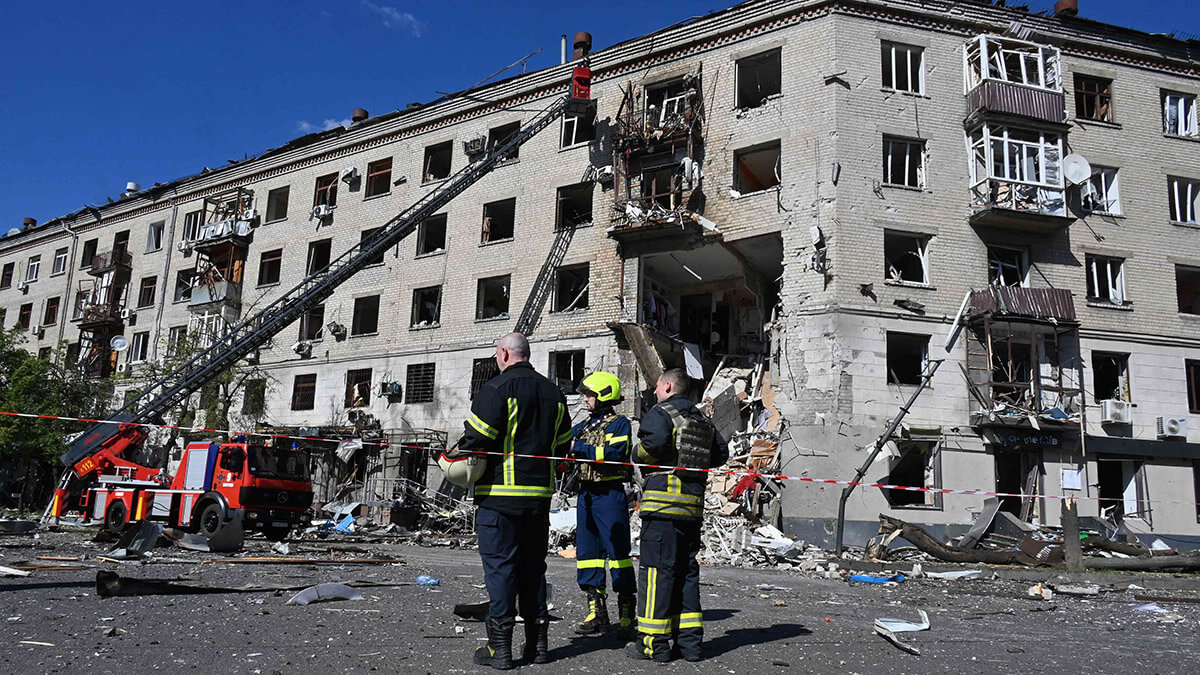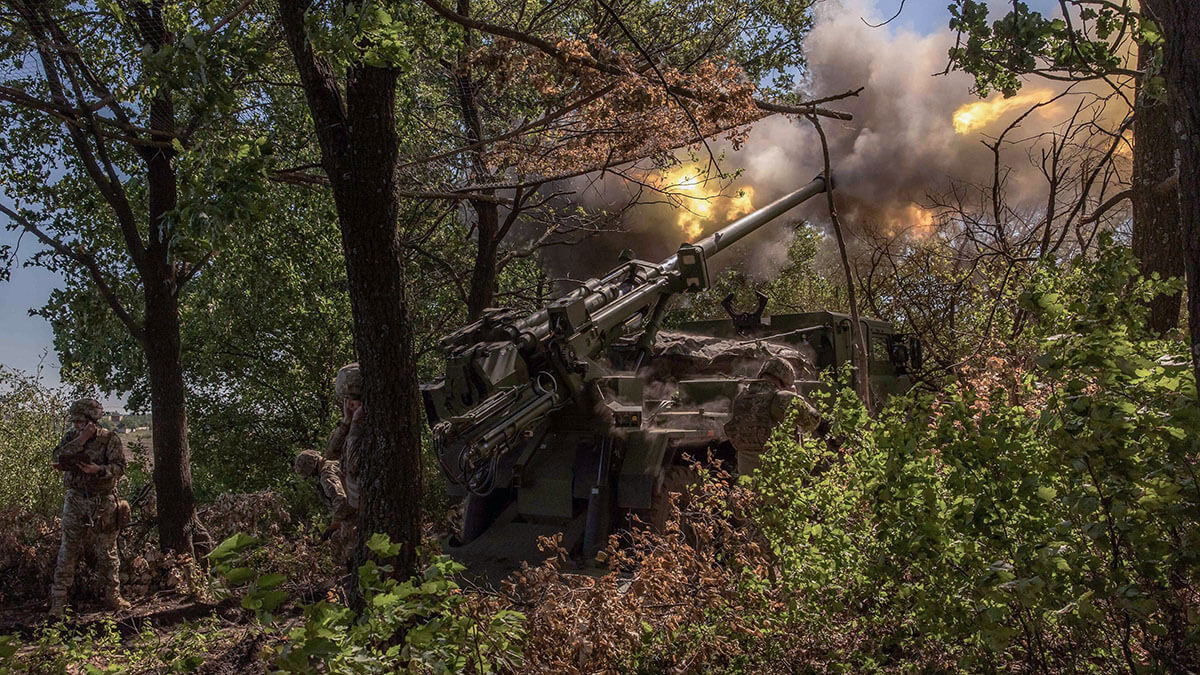Back to school does not stop Russian bombings

Reporter and journalist María Senovilla, a contributor to Atalayar, analysed from the field the increase in bombings of both energy infrastructures and civilian buildings, and now also military schools.
She also analyses President Volodymir Zelensky's profound reshuffle of the government.
The school year has started, but the bombings continue. What is the impact of the war like?
It has been the bloodiest start to the school year since Ukraine gained independence more than 30 years ago. This week schools started in those parts of the country where the security situation allows children to go physically, because in many other parts of the country education is still online.
There are also the millions of children outside Ukraine, in other countries, many of whom also have access to education online. But for those cities where schools have opened, as long as they have a shelter, Monday is the first day of school.
A couple of hours before schools started, Russia launched another massive attack in Kiev, which was one of the cities where most universities were destroyed. There were also attacks on streets, on civilian buildings where there were schools. The next day it bombed the university again, this time in Sumy, and a day later it bombed an educational centre.

A military school in Poltava, which was the equivalent of what we have in Spain as vocational training. It was a military school, but for cadets from the age of 16, who were going to study things related to communication, at the same time as learning about the military career. More than 50 people have been confirmed dead and more than 220 injured in the attack, although no details have been given, because as it is a military institution, no details are given.
It was the bloodiest start to the school year in living memory. It has been preceded by several weeks of bombardment against these electrical infrastructures, against these civilian buildings, which are being intensified by 30%.
Russian bombing of cities, of civilian targets, has increased by 30%, and no one is doing anything forceful to stop it. And this destruction is accumulating, because just as the school year began, figures were published on the impact of the war and the bombings on education, and there was talk of more than 3,500 schools bombed since the large-scale invasion began in February 2022. This is damage that will accumulate, it will be impossible to repair most of these schools, most of them will have to be rebuilt. In the meantime, fortunately, they have that support to receive the subjects online, as long as they are in a place where they have access to the internet and where they are not bombed.
In any case, the impact of the war on education is wreaking havoc. You can't see it right now, because it's so recent, but for the generations that are caught in the critical stages of their education right now, the tremendous blow that this way of disrupting their lives, their careers, the fear that those who still go to school every day in person have to feel when the alarm bells go off knowing what's going on is a damage that we will see over the next decade. As for this generation that has been caught in the war during their academic training, let's see what the after-effects are and how they manage to overcome this terrifying situation.

We are still in hardship, Maria, because you have been living for several days with people evacuated from areas of the Donbas in the face of the Russian advance. Has the optimism of the Ukrainian offensive in the Russian region of Kursk been short-lived, or are they still optimistic even though they have had to be evacuated?
The situation in the Donbas is absolutely critical. It was thought that, with this offensive on Russian soil, the Kremlin was going to transfer troops to the north and relieve some of the pressure in the Donbas, but the opposite has happened. Russia has stepped on the accelerator, is advancing towards the city of Pokrovsk, which a few months ago was a city where it was not even thought that Russian troops would arrive, and right now more than 35,000 people have been evacuated from Pokrovsk, which was a city of 60,000 inhabitants.
Added to that are the surrounding towns, which are even closer to the front line, and those who have to be taken out of basements in armoured cars, practically, because most of them, since Russia's technique now consists of softening up the target, of bombing the city and then taking it, there is no one left with a head and all the houses have been bombed. The people who are still holding out and waiting to be evacuated are usually waiting in cellars. That's what they told me these days when I was able to be with them.
For a month now, mass evacuations have been taking place, tens of thousands of people from this little piece of the Donbas, which is still under the control of the Ukrainian government. These evacuations were being carried out by train. Volunteers and police were managing to get these people out of the most critical places in armoured cars. They were taken to Pokrovsk, to the train station, and from there they left to start a new life, most of them didn't even know where.

But two days ago, the security situation in Pokrovsk deteriorated so much that the troops were already less than 10 kilometres away that the train evacuations had to be suspended. When I arrived in that city to cover what were being evacuations by train, I was told that they were suspended because there was a risk that Russia would fire a missile at the train station, as it has done on other occasions in the middle of evacuations. So hundreds of people had to be re-routed so that they could be taken out by road.
I got on one of those buses leaving Pokrovsk for the nearby Dnipro province and was able to share the journey with these people who told me where they had come from, how the situation had deteriorated over the last few weeks, how suddenly, from one moment to the next, they had lost everything. They had lost their home, their job, their social circle. They had taken what they could put in a couple of bags and the police, the volunteers, had taken them out of towns like Selydove, like Ukrainski, which are towns where urban fighting is already going on and there are Russian troops. The extraction was very delicate. And when they arrived in Pokrovsk, they were put on another bus.
Right now they are in Pavlohrad and I was with them in the transition centre for evacuees. Many of them didn't know where they were going to go. Others intended to go to relatives. Some of them were thinking of leaving Ukraine because they say that, if they had already lost everything, especially young people, that maybe they could start a new life in Europe, start looking for work and raise their children without the anguish of the anti-aircraft sirens and the shelling that, as I am telling you, has been going on for more than a month.

I wanted to focus on this, on these bombardments. Putin is once again targeting energy infrastructures with the third winter that is about to arrive. He's hitting civilians, this military school... It's a very complicated war of attrition. How is the mood?
People are still holding on, especially those whose houses have not been bombed, they are holding on to what they have. Although there are many problems; the population of displaced people to the west, these cities near Poland, and the new exodus of refugees that may occur when that third winter begins, if people have no electricity, no heating, in a country where it gets to 20 degrees below zero.
There is a lot of uncertainty, especially in those families with small children. A young couple told me that, in the Donbas, where the war started in 2014, they have grown up, they have lived there all these years, and they told me that they were not afraid until the baby arrived. When children arrive, you no longer think about them, you think about the safety of the little ones, and you rethink your whole life so that nothing happens to them.
We are on the verge of a new exodus of refugees for next winter, because what the Ukrainians manage to repair, those electrical substations, those energy infrastructures, Russia arrives in three nights, throws 100 missiles and 50 Shahed drones at you, and destroys them all over again. And there are already things that can't be repaired, that would have to be built from scratch. Ukraine's energy infrastructure is hanging by a thread.

Maria, was President Zelensky's profound reshuffle of the government necessary?
It was a reshuffle, but he didn't sack anyone. Most of the people he has dismissed are going to take up other posts in the government. This means that they were not doing badly and that they have not lost Zelensky's confidence. This reshuffle is a change in search of new perspectives, new ideas, new solutions to weather this critical stage of the war, which reminds me at times of the first months of the full-scale invasion and which looks set to get worse in the coming months.
Both armies are stepping on the gas in view of the US elections, which are also generating a lot of uncertainty, because if President Trump is elected, support for Ukraine might be withdrawn. They are pulling out all the stops in the months ahead to see if they can turn the tide of what is happening on the battlefield, so that Ukraine stops lagging behind Russia and can take the initiative in some areas.
We will have to see when they publish how the new names of the government are made up, where it is going, but many ministers who are leaving now will occupy other posts, it is not that they have been sacked. What we are looking for is that, to give it a new perspective, to look for new ideas, to look for new solutions to the terrible crisis in the midst of the war that is being unleashed.









